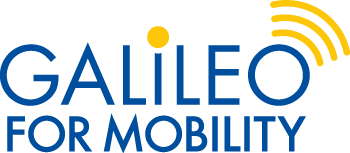Objectives
Galileo For Mobility pursues the following three objectives:
- To describe the different operational models and use cases involved in MaaS (vehicle sharing, ridesharing, public transport…) and identify how location is used across each of them.
- To understand how massive volumes of geolocation data from users and vehicles can be further exploited to improve service operations and urban mobility planning.
- To define the requirements for GNSS devices to accomplish these goals, exploiting Galileo features.
- To validate these requirements through 5 operational pilots with real users covering different use cases.
- To conduct a survey at the end of the pilots to assess the level of satisfaction of users, transport operators and city planners.
- To develop a Galileo-based OBU, meeting the requirements of the applications not only in terms of positioning performance but also in other aspects such as size, cost, power consumption and interfaces.
- To integrate novel IoT communication standards that can reduce the cost and power consumption of transmitting location data, being a driver for new uses and applications of GNSS by service operators and city planners.
- To develop big data analytic methods to exploit geolocation data to improve service operations and urban mobility planning.
- To elaborate an Exploitation Plan for the results of the project, following an in-depth analysis of the market sector, identifying more precisely the existing offer, successful business cases, standardization and regulation issues and market trends.
- To perform additional 8 small-scale pilots to showcase the benefits of Galileo to a larger number of transport operators and public authorities.
- To disseminate project results at relevant business events from the sector (at least two per year) and to coordinate actions with other ITS and Urban Mobility European entities and projects.
 This project has received funding from the European Global Navigation Satellite Systems Agency under grant agreement No 776381
This project has received funding from the European Global Navigation Satellite Systems Agency under grant agreement No 776381
